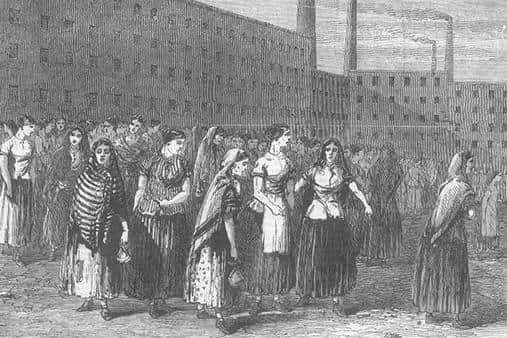Long-lost work of Burnley Victorian poet and blacksmith William Cunliffe could be published again thanks to University of Exeter Lancashire Cotton Famine poetry database
and live on Freeview channel 276
Professor Simon Rennie, Associate Professor of Victorian Poetry at Exeter University, who has created a database of ‘Lancashire Cotton Famine poetry’, has now gathered together Burnley blacksmith William Cunliffe’s work from various sources and is producing an introduction to the poet’s first collection of verse.
Professor Rennie said: “Compiling the database we found an amazing unknown dialect poet who had been a blacksmith in Burnley the 1860s, William Cunliffe.
Advertisement
Hide AdAdvertisement
Hide Ad“I am trying to raise funds to produce a collection of his poetry which I think people in Burnley could be really proud of. Rochdale has Edwin Waugh, Blackburn has William Billington, Burnley should have William Cunliffe. We have already raised more than half the amount required.”


The Knives Forks and Spoons Press is seeking £500 in donations to cover the production costs of this volume. Once published, this important text will be available internationally through the book trade.
William Cunliffe, a blacksmith and poet from Burnley, has featured in various national press outlets over the past decade and has an entry in the ODNB.
His poetry was featured in the Times in 2016 and the Sunday Times in 2018. Subsequently that year he was mentioned or quoted variously in the Guardian, BBC Radio Four's World at One programme, and the Smithsonian Magazine.
Advertisement
Hide AdAdvertisement
Hide AdHowever, his poetry, published between 1862 and 1864, was only discovered in the pages of the Burnley Free Press and General Advertiser in 2015, and his work has never been collected.
Professor Rennie added: “Lancashire towns have particular relationships with their Victorian dialect poets - Rochdale has Edwin Waugh, Blackburn has William Billington, and Ashton-under-Lyne has Samuel Laycock. Burnley currently has no access to the work of its town dialect poet beyond a few pieces published on the Cotton Famine Poetry database.”
The database brings together poems written in response to the Lancashire Cotton Famine of 1861-65. The crisis was caused by the American Civil War and, as well as poems from British local newspapers, poems published in America are included commenting on the relationship between the US, Britain, cotton, and slavery
To support the fund-raising visit https://www.gofundme.com/f/publish-the-poetry-of-william-cunliffe?fbclid=IwAR2ZjU7tySegIzPLSlEbsYRuY0R1LRmC6jh7iVo3LDOY1RW79wMHnm58MhI
